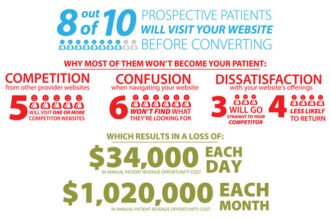 Hospital Readmissions – Contributing to Overall Healthcare Costs
Hospital Readmissions – Contributing to Overall Healthcare Costs
Healthcare has become something of a hard science, if the focus on data and numbers is any indication.
 Hospital Readmissions – Contributing to Overall Healthcare Costs
Hospital Readmissions – Contributing to Overall Healthcare Costs
Healthcare has become something of a hard science, if the focus on data and numbers is any indication. It would seem that the research, the endless reporting and spreadsheets of healthcare administration, has served to at least shed light on the problems healthcare is currently facing as an industry – but the fix isn’t likely to be in black and white.
One such challenge, readmission rates, is easily demonstrated when you take a minute to look at the numbers; new reports show that readmissions are costing healthcare $26 billion dollars a year – and $17 billion of that comes from preventable readmissions. One in five elderly patients will be readmitted within 30 days of a hospital stay – and a lot of those readmissions can be attributed to poorly outlined discharge instructions, medication reconciliation / errors or a complete lack of follow-up. CMS, of course, is largely aware of the readmission problem and has already begun to financially penalize organizations that have high readmission rates. One of the major researchers of readmission causes, the Robert Wood Johnson Foundation, sought to get to the bottom of this issue by conducting a study they called The Revolving Door, which is a cheeky, perhaps, but apt title.
What set this study apart from previous ones was the human factor – the foundation interviewed patients, their families and the providers and hospitals to provide a comprehensive view of just what, precisely, goes wrong that leads to a readmission. By dissecting this event without making too many assumptions, they were able to pinpoint some common themes in readmissions – including patient demographic, patient experience and outcomes as well as organizational qualities that could be vulnerabilities.
Unsurprisingly, when one reviews the case studies it’s obvious that the majority of the patients have multiple, comorbid chronic conditions which they struggle to manage. This leads to initial hospitalizations where, ultimately, the problem is not addressed in a way that will sustain them upon discharge – so, they land back in the hospital (sometimes within days). One thing that the study points out that should encourage rather than discourage physicians is that patients need to be engaged in their care, too. A physician isn’t a mind reader – they can come to know a great deal about a patient’s condition but if the patient keeps mum about how they feel regarding it, the process of exploring opportunities will stagnate. Of course, many patients cite feeling “rushed” or “ignored” as a barrier to sharing their concerns – and, as we know from ER throughput problems, this can be a very common barrier and one that requires its own strategizing. The takeaway, though, should be that patient care needs to be a collaborative process – one that embraces interoperability, communication and at the very least a basic knowledge by all parties of “what the other hand is doing” so to speak. Or, in the case of the healthcare system, maybe we ought to say “tentacles”; maybe eons ago it was just between the doctor and the patient, but now there are plenty of other players and stakeholders who need their voices to be heard.
It’s not likely that the solution to the readmission issue will be a one-size fits all plan that can be rolled out the same way from one hospital to the next: we love “in-a-box” style fixes because they’re quick and easy, but they are rarely sustainable solutions, and that’s what healthcare needs. It’s not enough to patch up the readmission dilemma in order to meet government mandates or avoid penalties; we have to make real and lasting change to how we engage in and practice medicine, from the provider, patient and payer perspective, if we want to see these numbers decline.
Think about it like this: have you ever tried to shoot a basketball into a hoop? Back when I was a kid (one who was terrible at sports, I’m afraid) we were taught the most important part of taking a shot was the follow through: if you lowered your hands too quickly, ruining your form, you weren’t apt to make the basket. When it comes to discharging patients and losing them to follow-up, we’ve got to think not just about lining up the shot – but the follow-through. Easier said than done when you consider how much doctors are being asked to do – not just treat patients but organize staff, be an accountant and a transcriptionist and a number of other administrative tasks that may well be below their pay grade- but if we can shift the focus back to patient care and a sense of teamwork, I’d bet we’ll be making more shots than we miss when it comes to readmissions.








